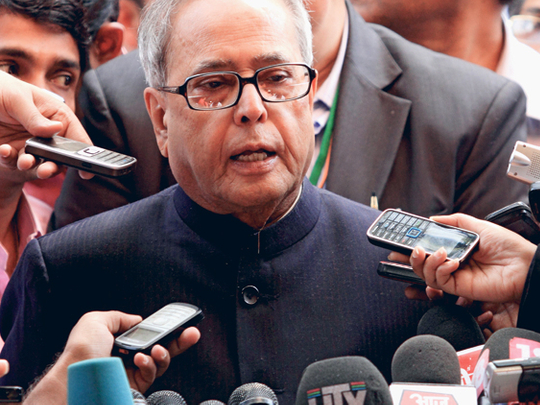
New Delhi: The Indian government's ambitions to boost economic growth through pro-market legislation may be sinking into parliamentary quicksand amid a slew of stalled Bills, reluctant allies and an emboldened opposition.
In just the last week, the ruling Congress party has seen its landmark women's and nuclear liability Bills stalled despite the left-of-centre government enjoying a parliamentary majority after 2009's resounding re-election.
With clumsy party management and a degree of political haughtiness after that victory, Congress managed to lose some parliamentary allies, annoy others and galvanise a divided opposition who believe the ruling coalition majority is softer than it seems.
While the women's Bill was socially rather than economically significant, a message of weakness was sent out. In doubt now is the government's ability to pass other important laws, from the introduction of foreign universities into India to the opening up of insurance to foreign companies, the latter languishing in a standing committee.
The nuclear Bill, which limits nuclear firms' liability in case of industrial accidents, will delay entry of US firms into India's $150 billion (Dh550.5 billion) nuclear market and is a setback for industry, where power blackouts can be a huge drain on resources.
Biggest mistake
"The government's biggest mistake has been arrogance," said Mukhtar Naqvi, vice-president of the main opposition party, the Hindu nationalist Bharatiya Janata Party (BJP), which supported the women's Bill to reserve a third of parliamentary seats to females.
"That has meant many parties that were willing to support Bills in the parliament have now lost confidence in the government. "That will make passing reforms through parliament more difficult in the future."
Recovering quicker than expected from the global crunch, India's economy is forecast to grow at more than 7 per cent this year and nearly 9 per cent in 2011.
But investors question its sustainability unless policies are introduced to push investment into India's dilapidated roads, ports and airports and allow India's large savings to be channelled into productive returns.
Bills that liberalise insurance and banking look increasingly off the table as does legislation to open up retail, which could resolve supply bottlenecks contributing to high inflation
Finance Minister Pranab Mukherjee's budget last month relies on growth over spending cuts to reduce the fiscal deficit from a 16 year high of 6.9 per cent and help cut record borrowing. Not all reform will need legislation, and the government has already passed cuts in fertiliser subsidies and raised fuel prices to reduce the fiscal deficit. Sales of stakes in state firms are also underway.
But a weakness in parliament sends a signal across India's political spectrum. Plans to streamline tax revenues depend on each of India's 28 states agreeing, and political bickering among its allies will do nothing to help that.
Markets have priced in the slow pace of reform as something in India's DNA and are resigned that this democracy of 1 billion people and more than 20 official languages will never be able to compete with rival China when it comes to bulldozing policy.
And some in the government say don't worry about speed.
"Nine per cent growth even without those reforms we will manage," said Kaushik Basu, chief economic adviser to the finance ministry.
But the coalition's weakening came quicker than expected. This was meant to be an easy year for Congress, riding high after re-election and with few state elections to worry about.
The women's Bill put a stop to that. The withdrawal of the Samajwadi Party and the RJD from supporting the coalition in protest cost Congress 26 seats in the lower house.
Congress has 208 seats — 64 short of a majority — and it relies on a host of other parties to stay in government.
Fuel price
Two regional parties within the coalition, Trinamool Congress from West Bengal and the DMK from Tamil Nadu, have opposed the government over fuel price hikes in the budget, although they are staying in the coalition.
The majority coalition may be in fact be the equivalent of the fairy tale's emperor with new clothes.
"The Congress party has to stop deluding itself that it has a two-thirds majority in parliament," wrote political analyst Manoj Joshi in Mail Today. "It does not even have a majority."












